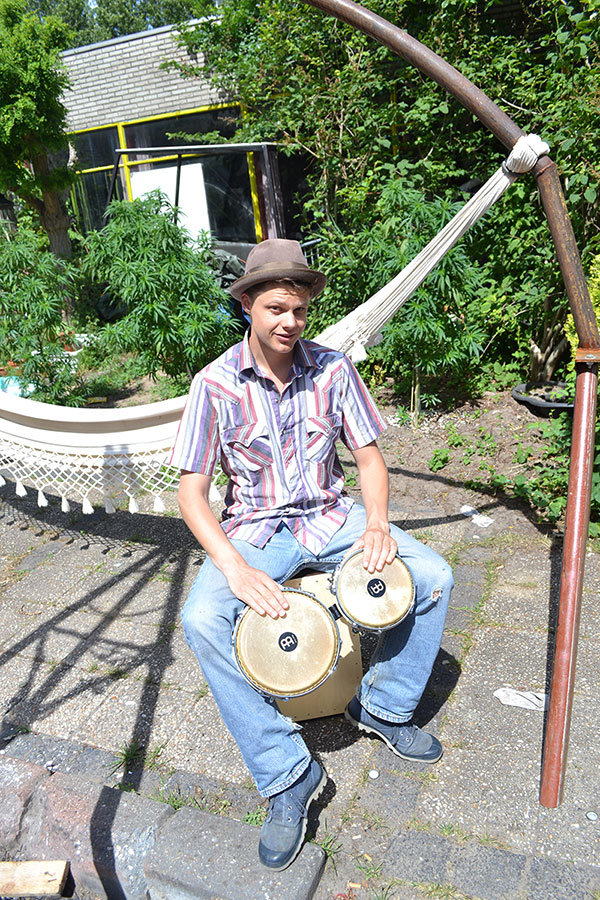In my last post, I've described the experience that brought me to rhythm. After that summer in 2014, I decided to buy myself a Cajon, and to subscribe to a percussion introduction course. The percussion course consisted of group lessons that gave an introduction into the Djembé, the Cajon and the Darbuka. It was a weekly course that lasted for 5 months. We learned some basic patterns, how to count bars, some breaks and playing together in groups. It gave me a pretty good idea of what percussion was about.
During this time, I still lived in the squat and I also tried to teach myself to play the drum kit. I watched every documentary about rhythm that I could find on the internet. I practiced reading rhythmic notation, saying out loud Da Ba Da Da Na Va Da Ba Da, using a metronome and a great book called The Rhythm Bible. But here I was, getting into drums, Darbuka, Cajon, Djembé...all at the same time and not really getting anywhere.
I decided that I had to focus on one instrument at the time. And that instrument was going to be, as explained in my previous post, the bongo's. I didn't really know anything about the bongo's, except for that we needed some percussion instrument for our occasional reggae jams. It turned out that the bongo's weren't used in reggae at all. But I was already the proud owner of these beauties:

Check them out: Meinl Woodcraft Bongo Series
I started to read about bongo's all that I could find. I took some video lessons, like the ones from multipercussionist Pete Lockett. I discovered that the bongo's most probably originated in central Africa, and developed further in the eastern region of Cuba (because of slave traffic). They are to be found a lot in multiple types of Afro-Cuban music, but spread out further throughout the caribbean islands and latin America, and the rest of the world. They can now be found in a wide range of musical genres.
Although I didn't necessarily intended to play Afro Cuban music, I decided that it was there that I had to start learning playing the bongo's. So I went to look out for a teacher who could give me individual lessons. I found a music school called het Muziekpakhuis, in Amsterdam. Jochen Hachgenei is teaching latin percussion there. I sent him an email to ask wheter he could teach me to play the bongo's and he said yes!
This is where my adventure into Latin music took off. And that is what I will write about in my next post.
Great story. I look forward to hearing more about your rhythmic journey. I play a little bit of percussion myself. Thanks for sharing.
Downvoting a post can decrease pending rewards and make it less visible. Common reasons:
Submit
Thanks for your comment! What do you play?
Downvoting a post can decrease pending rewards and make it less visible. Common reasons:
Submit
I primarily play djembe and ashiko. I really like how many African drums are capable of a multitude of sounds. It is almost like having a small drum set, with just one drum.
Downvoting a post can decrease pending rewards and make it less visible. Common reasons:
Submit
Yes it's true! Ashiko seems interesting as well. Would like to dive into african drummng as well at some point, but everything at it's time. Thing is you can kind of spent a lifetime getting into these rhytmic cultures right :)
Downvoting a post can decrease pending rewards and make it less visible. Common reasons:
Submit